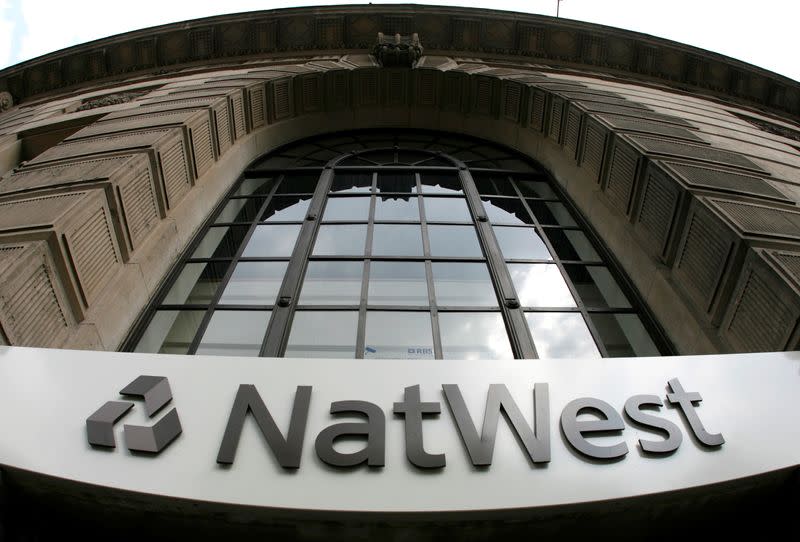NatWest profit jumps as cost-of-living crisis looms

By Iain Withers and Lawrence White
LONDON (Reuters) - British lender NatWest posted a 41% jump in first-quarter profit on Friday, as rising rates boosted income even as they threaten to further squeeze household incomes.
While banks have benefitted from the end of COVID-19 lockdowns and higher benchmark rates, NatWest CEO Alison Rose said she was "very aware of the challenges and concerns the cost-of-living crisis is causing".
The lender reported a pretax profit of 1.2 billion pounds ($1.50 billion), up from 885 million a year earlier and restated to exclude the Irish business it has exited.
That topped the 755 million expected by analysts in a poll compiled by the bank and was lifted by a 15% increase in income to 3 billion pounds, with lending boosted by Britain's buoyant housing market.
NatWest shares were up 1% at 0705 GMT.
The bank maintained its economic forecasts, which will be updated later in year, but could be acutely exposed to any slowdown as one of Britain's largest lenders and its biggest business bank.
In the first quarter NatWest released 38 million pounds of cash that had been set aside for potential defaults.
Rivals Barclays, Lloyds and HSBC all warned this week of potential damage to their finances from inflation, which has been heightened by the impact of war in Ukraine.
Like its peers, the bank's core capital ratio fell significantly, to 15.2% from 18.2% last year, partly due to the impact of regulatory changes.
The former Royal Bank of Scotland made its long-awaited return to majority private control last month after the government sold a further chunk of stock, 14 years after its taxpayer-funded rescue at the height of the financial crisis.
CEO Rose has sought to further cut costs since taking over in 2019, axing its under-performing Irish business and downsizing its minnow investment bank.
($1 = 0.7992 pounds)
(Reporting by Iain Withers and Lawrence White; editing by Jason Neely)

 Yahoo Finance
Yahoo Finance 